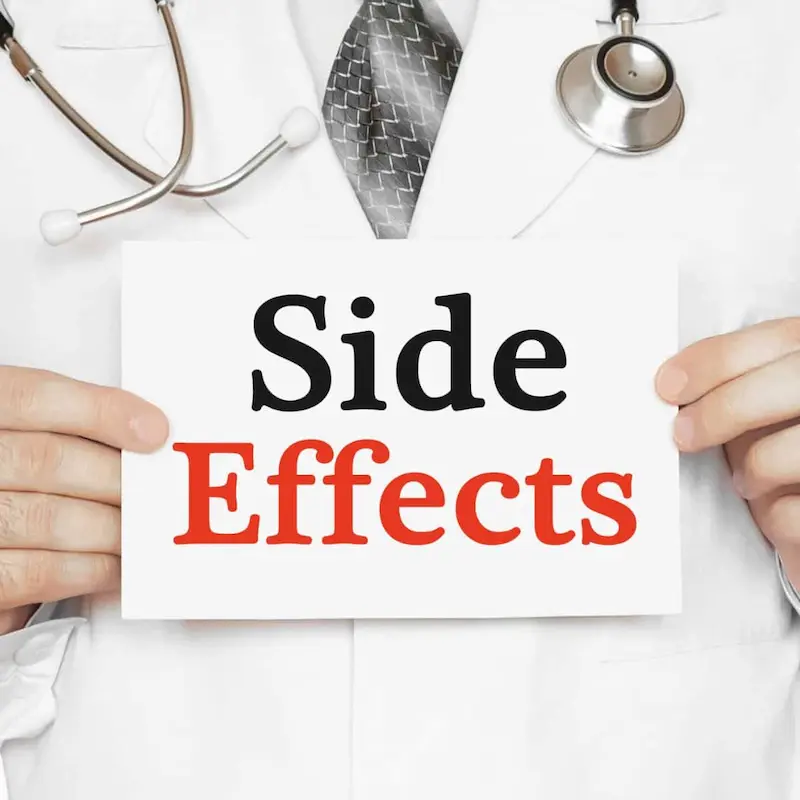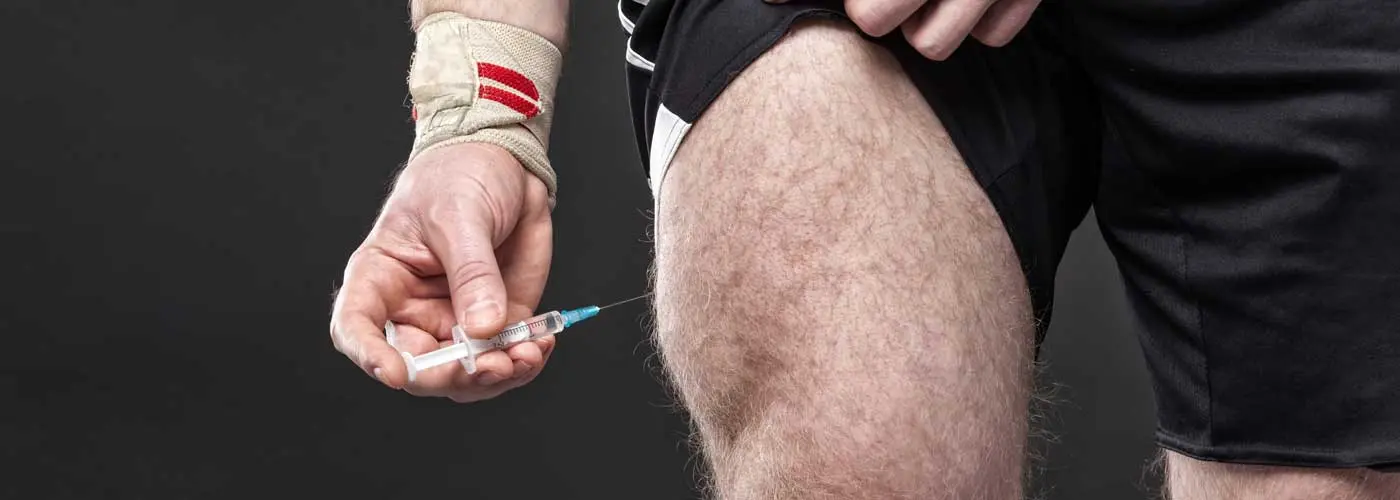Testosterone injections are a form of hormone replacement therapy that doctors prescribe to men and some transgender individuals who have low testosterone levels. Testosterone is a crucial hormone that affects various body functions, including muscle mass, bone density, and mood. The treatment aims to normalize testosterone levels, potentially improving quality of life and alleviating symptoms associated with hormonal imbalances.
While testosterone therapy can offer benefits to those with low levels, it also comes with an array of potential side effects. The severity and occurrence of these side effects can vary from person to person. Common side effects include acne, pain at the injection site, and mood swings. More serious concerns involve the risk of blood clots, heart attack, and stroke, particularly in specific populations with pre-existing health conditions. Health care providers usually monitor their patients closely to manage any adverse reactions and adjust treatment as necessary.
Quick Summary
- Testosterone injections are prescribed for low testosterone levels but come with side effects.
- Minor side effects often include acne and injection site pain, while more serious risks may include cardiovascular issues.
- Notifying healthcare providers of side effects ensures proper management and dosage adjustments.
Testosterone Injection Basics

Testosterone injections are a common treatment option for individuals with low testosterone levels, which may arise from conditions such as hypogonadism.
Understanding Testosterone
Testosterone is a critical hormone for male development and health, influencing muscle mass, bone density, and sex drive. Testosterone injections administer this hormone directly into the muscle, typically given to patients with medically low testosterone levels.
There are several types of testosterone injections available:
- Testosterone Cypionate: Often marketed as Depo-Testosterone, this is a commonly prescribed form due to its longer half-life, allowing for less frequent injections.
- Testosterone Enanthate: Similar to cypionate, enanthate is another ester of testosterone. It sustains testosterone levels with a Comparable dosing schedule to cypionate.
- Aveed (Testosterone Undecanoate): A long-acting injection that may reduce the frequency of doses.
- Xyosted (Testosterone Enanthate Autoinjector): A newer, self-administered injection designed for weekly use.
These medications aim to restore normal testosterone levels, thereby alleviating the symptoms associated with low testosterone. They do not cure the underlying cause but rather compensate for the hormone deficiency. Prescribing and administration of these injections should be carefully monitored by healthcare professionals to achieve the desired therapeutic outcomes and to minimize potential side effects.
References
Potential Benefits of Testosterone Injections

Testosterone injections can significantly impact individuals with low testosterone levels, enhancing muscle mass and improving sexual function.
Effects on Muscle Mass and Strength
Testosterone is a pivotal hormone in muscle development and strength. Testosterone replacement therapy (TRT) can lead to increased muscle mass and strength in men with testosterone deficiency. Studies have shown that injections can increase muscle protein synthesis, which is the body’s process of building new muscle. TRT has been shown to be particularly effective in combination with resistance training for increasing lean body mass and muscle performance.
Influence on Sex Drive and Erectile Function
The influence of testosterone on sexual health is well-documented. It regulates sex drive and plays a crucial role in maintaining erectile function. Men with low testosterone levels can experience a decrease in libido and erectile dysfunction. Testosterone injections have been used to improve sexual desire and reduce instances of erectile dysfunction when the underlying cause is linked to hormonal imbalances.
References
- “Effect of testosterone on muscle mass and muscle protein synthesis” – https://www.ncbi.nlm.nih.gov/pubmed/2917954
- “Testosterone therapy in men with androgen deficiency syndromes: An Endocrine Society clinical practice guideline” – https://www.ncbi.nlm.nih.gov/pubmed/20525905
Common Side Effects of Testosterone Injections

Testosterone injections can lead to a variety of side effects that patients should be aware of. The following list includes some common reactions to testosterone therapy:
Physical Reactions:
- Pain and swelling at the injection site: Patients often report discomfort, redness, or swelling where the testosterone was injected.
- Headaches can occur but generally subside over time.
- Increased red blood cell counts sometimes lead to high blood pressure; regular monitoring is important.
- Nausea may also be experienced but usually diminishes as the body adjusts to the hormone.
Skin Changes:
- Acne is a frequently reported issue due to increased oil production in the skin.
Mood Alterations:
- Fluctuations in mood swings can arise, making individuals feel more irritable or even depressed at times.
It’s paramount for patients to discuss any side effects with their healthcare provider to manage and mitigate potential risks. This information is intended for general awareness and should not replace professional medical advice.
References
Health Risks & Serious Side Effects of Testosterone Injections

Testosterone injections can pose significant health risks, particularly if they are used improperly or without medical supervision. These risks can affect various bodily systems, leading to serious side effects.
Cardiovascular Concerns
Testosterone injections can influence heart health in several detrimental ways. They can lead to:
- Heart problems: An increase in the risk of heart disease and heart attack, particularly in patients with preexisting cardiovascular conditions.
- Blood pressure: Elevated blood pressure, which may contribute to cardiovascular strain.
- Blood clots: Strokes and other issues related to blood clots in the veins, which can be life-threatening events.
Endocrine and Metabolic Issues
Hormonal and metabolic functions may also be adversely affected by testosterone therapy, resulting in:
- Diabetes: Potential worsening of blood sugar control in patients with diabetes.
- Liver disease: There’s a risk of liver abnormalities and liver disease, which requires careful monitoring.
Mental Health Complications
The administration of testosterone can result in changes in mental health, including:
- Mood changes: Patients may experience mood swings, increased irritability, and heightened aggression.
- Anxiety and Depression: These injections are associated with an increased incidence of anxiety and depression, necessitating close observation of the patient’s mental health.
Specific Populations and Testosterone Injections

Testosterone injections have different considerations for specific groups, potentially causing varied side effects dependent on factors like age and gender.
Women and Children
Women are typically not prescribed testosterone injections due to the risk of virilization—development of male sex characteristics—which can include deepening of the voice, increased body hair, and menstrual irregularities. In children, particularly those assigned female at birth, testosterone injections could induce premature onset of puberty, disrupt normal growth patterns, and may have long-term fertility implications.
When considering women who are pregnant or breastfeeding, testosterone injections are contraindicated, as they can harm fetal development and potentially affect the infant through breast milk. Testosterone therapy in women is sometimes used in specific medical scenarios, such as certain types of breast cancer, but must be closely monitored by a healthcare provider.
Aging and Elderly Patients
The aging population, particularly men with declining testosterone levels, may consider testosterone therapy. It is important to note that while some believe testosterone injections can alleviate symptoms of aging, like decreased muscle mass and energy levels, the therapy’s benefits and risks should be carefully weighed.
Elderly patients may have an increased risk of adverse effects from testosterone injections, such as exacerbated prostate cancer. These injections have also been associated with an increased risk for cardiovascular events, especially in older males with pre-existing heart conditions. Regular monitoring and screenings are essential for aging individuals undergoing testosterone therapy to manage these risks.
References
- Virilization in Women: https://www.ncbi.nlm.nih.gov/books/NBK279105/
- Testosterone Therapy in Women: https://www.ncbi.nlm.nih.gov/pmc/articles/PMC3127562/
- Testosterone and Aging: https://www.ncbi.nlm.nih.gov/pmc/articles/PMC2544367/
- Testosterone Therapy and Prostate Cancer: https://www.ncbi.nlm.nih.gov/pmc/articles/PMC4707424/
- Cardiovascular Risk and Testosterone Injections in Aging Men: https://www.ncbi.nlm.nih.gov/pmc/articles/PMC5870326/
Administration and Dosages

Proper administration and accurate dosing are crucial to achieving the desired therapeutic effects of testosterone injections and minimizing side-effects. This section provides guidance on injection procedures and dosage considerations.
Injection Procedures
Testosterone injections are typically administered intramuscularly, meaning they are injected directly into the muscle. The most common muscles for administration include the gluteus maximus, the thigh, or the deltoid. It is paramount to maintain sterile techniques to avoid infection. The steps are as follows:
- Preparation: Ensure the medication is at room temperature.
- Site Selection: Rotate injection sites to prevent tissue damage.
- Sanitization: Clean the site with an alcohol swab.
- Needle Selection: Use the appropriate needle size as recommended by a healthcare provider.
- Injection: Insert the needle at a 90-degree angle and inject the medication slowly.
- Post-injection Care: Apply pressure if bleeding occurs and monitor for side effects.
It is essential that individuals do not attempt to self-administer testosterone injections without instruction from their doctor.
Dosage Considerations
The dosage of testosterone injections is determined by the prescribing physician and is based on the individual’s medical condition, testosterone levels as confirmed by blood tests, and response to therapy. Dosage guidelines typically include:
- Starting Dose: An initial dose to begin therapy which may be conservative to gauge tolerance.
- Maintenance Dose: An adjusted dose based on blood test results and symptom management.
- Monitoring: Regular blood tests to monitor testosterone levels and adjust dosage as necessary.
Medication should be prescribed after a thorough evaluation and as part of a broader treatment plan. Individuals should not use testosterone injections beyond their expiration date and should follow the prescription provided by their healthcare professional closely.
Possible Drug Interactions

When a patient is administered testosterone injections, it is crucial to be aware of the potential drug interactions. The following list provides insight into some medications that may interact with testosterone:
- Warfarin: Testosterone can increase the anticoagulant effects of warfarin, which may necessitate dosage adjustments and careful monitoring to prevent bleeding complications.
- Prednisone: Concurrent use may result in increased fluid retention and should be monitored by a healthcare professional, as this can exacerbate conditions such as congestive heart failure or kidney disease.
- Birth Control: Testosterone can reduce the effectiveness of birth control medications, leading to potential unintended pregnancies.
Patients should notify their doctor about all current medications. Allergic reactions, both to testosterone itself and to other medications, can occur and may require immediate attention.
Note for Patients:
- Always disclose your full medical history to your healthcare provider, including any history of allergic reactions.
- Consult with your doctor prior to starting or stopping any medication.
- Monitor for any changes in your body or health when combining medications and report these to your healthcare provider.
References
When to Contact a Healthcare Provider

Testosterone injections can have side effects, and while most of them are manageable, some require immediate medical attention. It is critical to understand when to seek help from a healthcare professional.
Recognizing Allergic Reactions
Allergic reactions are serious and can manifest as a rash, hives, trouble breathing, or swelling of the face and throat. If these symptoms are observed, it is imperative to contact a doctor immediately or visit an emergency room. Delay in treatment of allergic reactions can lead to severe consequences.
- Symptoms to watch for:
- Rash or hives
- Swelling, particularly of the face, throat, or tongue
- Difficulty breathing or speaking
Emergency Symptoms
Certain symptoms experienced after testosterone injections may indicate emergency conditions. Immediate contact with a healthcare provider is essential if one experiences any of the following:
- Chest pain or shortness of breath: Potential signs of a cardiovascular event.
- Joint pain and swelling: May indicate a blood clot
- Numbness or weakness in parts of the body: Could be a stroke symptom.
- Trouble breathing: Particularly if it is sudden and severe.
In case of life-threatening symptoms or uncertainty about the severity, one should not hesitate to call a poison control center or dial emergency services.
| Symptom | Action Required |
|---|---|
| Chest pain | Contact a doctor immediately |
| Shortness of breath | Seek emergency medical care |
| Severe joint pain | Call healthcare provider |
| Sudden numbness | Dial emergency services |
| Difficulty breathing | Reach out to poison control |
Frequently Asked Questions

Testosterone injections can have a range of side effects, and it is important to be aware of them. This section aims to address some common queries regarding the possible repercussions of testosterone therapy.
What are the potential side effects experienced by men using testosterone injections?
Testosterone injections in men might lead to skin conditions such as acne and oily skin, an increased red blood cell count, sleep apnea, prostate growth, and a reduced sperm count. Some individuals may also experience pain or swelling at the injection site.
Can testosterone injections cause psychological side effects?
Yes, testosterone injections can cause psychological side effects that may include mood swings, increased aggression, and mental health conditions like anxiety or depression.
What adverse effects might women encounter when using testosterone injections?
Women using testosterone injections may face side effects such as hirsutism, voice deepening, menstrual irregularities, and clitoral enlargement. Additionally, there may be an increased risk of breast or uterine cancer.
Are there any known overdose symptoms associated with testosterone injections?
Symptoms of testosterone overdose can include chest pain, difficulty breathing, blurred vision, slurred speech, or a sudden headache. Overdose can also exacerbate side effects like blood clots, stroke, or heart attack.
What is the most common side effect reported with testosterone therapy?
The most common side effect reported with testosterone therapy is a reaction at the injection site, which can include pain, swelling, and redness.
After starting testosterone injections, are there any significant changes one should expect in the body?
Individuals starting testosterone injections might experience increased muscle mass, changes in fat distribution, and potentially an increase in libido. Other effects include body hair growth and deepening of the voice.
Dr. Grant Fourie, a specialist in male hormones, is based in Cape Town, South Africa. He provides comprehensive treatments for conditions related to low testosterone, such as erectile dysfunction, fatigue, and mood changes. His methods include hormone replacement therapy and other modern treatment options.
Contact me via email or phone to book personal appointment in my clinic: The Village Square, Cape Town - South Africa



